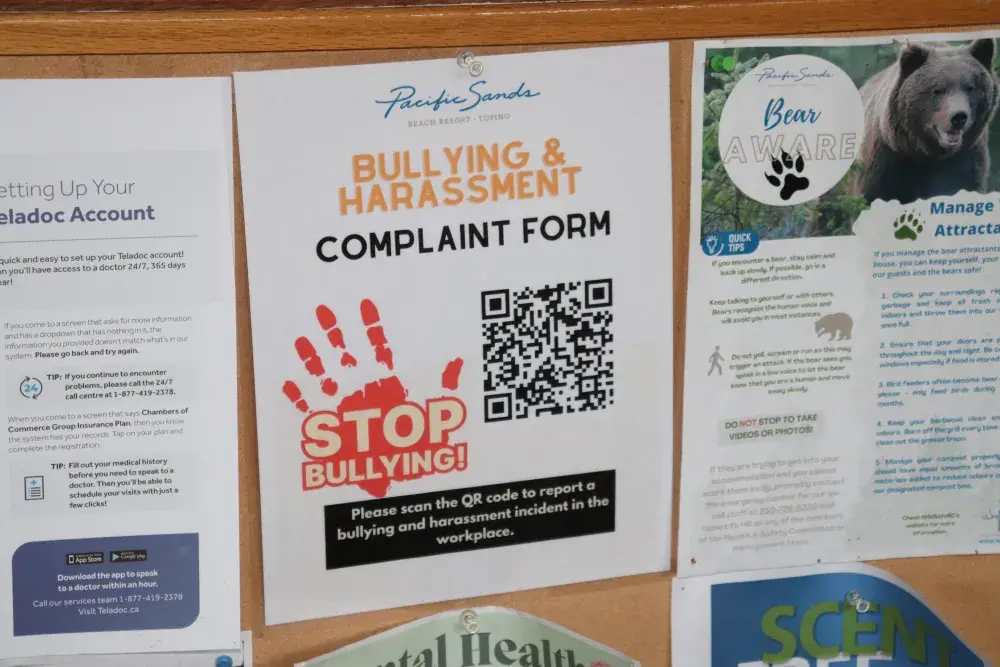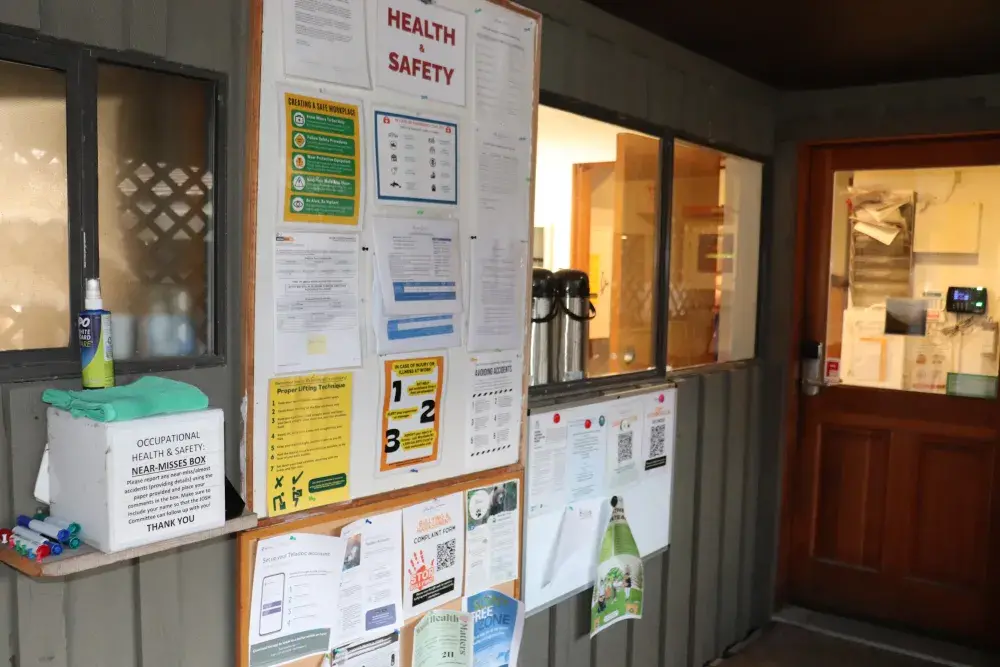Under a canopy of warm holiday lights from within Tofino’s community hall, dozens of West Coast residents gathered for a day-long workshop to take meaningful steps towards ending sexual violence.
Hosted by the Clayoquot Biosphere Trust in partnership with the Westcoast Community Resources Society (WCRS), the urgency of the November 18 gathering was tied to an alarming crime statistic – in Tofino and the neighbouring Nuu-chah-nulth First Nations communities of Ty-Histanis, Esowista and Ahousaht, the rate of sexual assault is vastly higher than other municipalities. According to crime statistics gathered by police, the Tofino region saw a rate of level 1 sexual assault that was three times greater than reported in Whistler over the past four years, and much higher than Ucluelet and Port Alberni as well. Last year the Tofino region had 346.5 level 1 sexual assaults per 100,000 population, compared to 162 for Whistler, 191 in Ucluelet and 200 in Port Alberni. Level 1 sexual assault includes attacks of a sexual nature that do not cause physical injuries.
WCRS Executive Director Laurie Hannah says the police-reported incidences of sexual assault from 2019 to 2023 are split evenly between Tofino and the offshore community of Ahousaht, located about 40-minutes by boat from Tofino’s First Street Dock.
Hannah thinks Tofino’s “huge influx of seasonal employees” might contribute to the area’s relatively high rate of sexual assault, but notes that the region’s historical lack of services for survivors could likely have a lot to do with it as well.
“There has been an acceptable culture of rape on the West Coast, whereas you go to many other communities like Whistler, the Sea to Sky has had a Sexual Assault Response Program for over 10 years. Ours is very new so we haven’t had these community conversations yet,” she said.
WCRS launched its own Sexual Assault Response Program (SARP) about a year ago. SARP is a free and confidential service for survivors of all genders that offers the option of third-party reporting, which means victims can share their story in a safe way and inform the police about the crime without them knowing your identity.
“There is no time limit for when you can report,” said Jenna Pearce, WCRS SARP co-ordinator.
According to research conducted by Adam Cotter at the Canadian Centre for Justice and Community Safety Statistics, the odds of sexual assault being reported to police are about 80 per cent lower than for other violent crimes. This research indicates that only six per cent of sexual assaults are reported to police, making it the most underreported crime measured in the General Social Survey on Victimization.
One of the most common reasons people do report, says Pearce, is to prevent it from happening to others.
“Survivors continue to want to protect others, and this is one of the most beautiful resilient things that I get to witness,” Pearce said.
“As I have had the privilege of hearing the courageous stories of survivors, I’m reminded that this journey to ending sexual violence requires all of us,” she continued. “Together we can amplify these voices, we can address the unique barriers that we experience on the west coast, and we can build a future where safety, justice and healing are more than just ideals – they are realities. Let’s make today a meaningful step towards ending sexual violence.”
Some Tofino accommodation providers are taking proactive measures to create positive workplace cultures that foster respect. WCRS has conducted in-person sexual harassment and consent training for staff at Tofino Resort + Marina and this past spring, Pacific Sands Beach Resort launched a QR Code reporting form for bullying and harassment.
“The idea is very straightforward. We recognized that some people are more comfortable communicating virtually than addressing concerns in-person,” said Linc Solante, Pacific Sands employee relations manager for the last two years.
“We just want to make sure there is an accessible and discrete way for staff to report things to us. That would also help us to investigate promptly and efficiently,” Solante said, noting that the form is posted on the Health and Safety board and on all common staff rooms.
During the peak summer months, Pacific Sands can have up to 69 employees living in staff housing.
“It’s pretty hectic having to manage housing that big. I have help; there is a head of household, a health and safety co-ordinator, and I’m just proud that even if we have a large number of employees living on site, I would say our incidents are zero to minimal,” said Solante. “I think it helps that staff know that staff accommodations are tied to their employment. If they break a rule, there is a risk for them to get evicted.”
Tofino’s Nov. 18 Vital Conversation on Sexual Assault Response and Consent also included presentations from Hillary McLeod, a certified sexual health educator with School District 70, and Tana Thomas and Chris Seitcher from Kackaamin Family Development Centre.
Located in Port Alberni, Kackaamin is one of three Indigenous Family Treatment programs in Canada. Kackaamin embodies a “spirit-led clinical” approach to family wellness that is community-driven and First Nation-based, rooted in traditional practices.
Thomas said more Nuu-chah-nulth men are “coming through the door” to access the Rebuilding the Circle program that addresses the impacts of sexual abuse and assault.
Information on Rebuilding the Circle (RTC) can be found on their website www.kackaamin.org or by calling (778) 421-8811. The non-profit society also offers a six-week Family Program for healing.
“We can’t just focus on individual healing. We have to look at the bigger picture, especially if we want to make big changes for the generations that come,” states RTC facilitator Anita-Charleson Touchie in an introductory video that was played during the workshop.
Members of the Uuštukyuu team were available with support and traditional brushings throughout the day.


